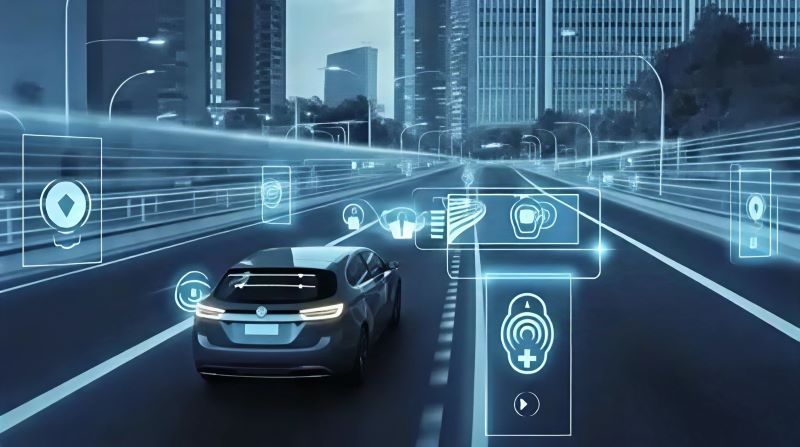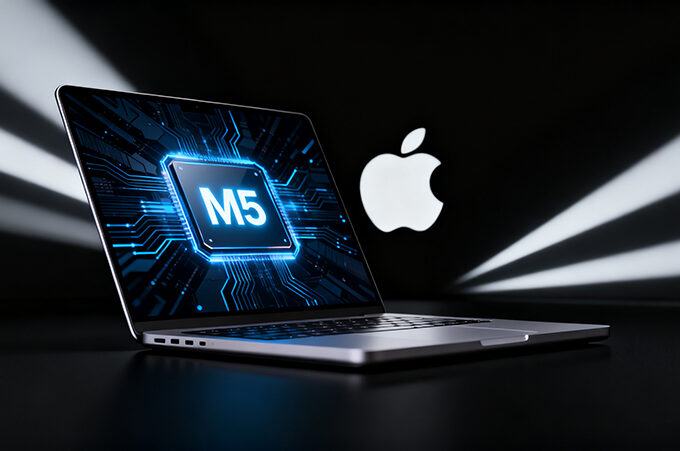China’s Ministry of Commerce and seven other departments jointly issued the Guiding Opinions on Vigorously Developing Digital Consumption and Jointly Creating a Better Life in the Digital Era (hereinafter referred to as the Guiding Opinions), with a key focus on advancing the digital economy through new initiatives.
Pilot Boosts Digital Consumption and Industry
A core measure in the Guiding Opinions is the launch of a pilot program for the access and road operation of smart connected cars. This move is expected to drive the intelligent transformation of China’s automotive industry while linking consumer and industrial ends to foster a new engine for digital economic growth.
Industry insiders told Securities Daily that the pilot will accelerate technological upgrades for upstream and downstream enterprises, covering areas like chip design, high-precision maps, and vehicle-road coordination. It is projected to trigger a comprehensive upgrade of the industrial chain, potentially reaching a scale of trillions of yuan. Additionally, the pilot is set to expand related digital consumption and create more jobs across the industrial chain.
20 Cities Build Vehicle-Road-Cloud Ecosystem
The pilot initiative is rapidly translating into practical actions. Guo Shougang, Deputy Director of the First Department of Equipment Industry under the Ministry of Industry and Information Technology (MIIT), stated at the press conference of the 2025 World Intelligent Connected Vehicles Conference that China is accelerating the construction of 20 “vehicle-road-cloud integration” pilot cities. As of the latest information, over 35,000 kilometers of test and demonstration roads have been opened, and more than 10,000 test and demonstration licenses have been issued, covering first-tier cities, new first-tier cities, and core cities in key economic circles.
Earlier, four departments including MIIT identified the first batch of pilot cities, namely Chongqing, Guangzhou, Shenzhen, Shanghai, Beijing, Changsha, and Wuhan. Nine enterprise consortia involved in the pilot cover multiple product categories such as passenger cars, trucks, and buses, and are now entering the practical phase of product access and road operation. Some cities have already achieved regular operation of high-level autonomous vehicles in specific areas.
Local pilot practices are advancing with distinct features. As China’s first policy pilot zone for smart connected cars, Beijing is pushing forward the construction of intelligent connected infrastructure in Phase 4.0. Currently, the construction of Beijing’s “dual intelligence” (coordinated development of smart city infrastructure and smart connected cars) has accelerated, achieving contiguous coverage of “vehicle-road-cloud integration” infrastructure across 600 square kilometers of the city. It has issued over 1,100 test licenses and accumulated more than 45 million kilometers of autonomous driving test mileage. Companies like Apollo Intelligent Technology (Beijing) Co., Ltd. and Beijing Pony.ai Technology Co., Ltd. have seen rapid growth in orders for their autonomous taxi (Robotaxi) services.
Su Guobin, Deputy Director of the Beijing Municipal Bureau of Economy and Information Technology, noted that Beijing is continuing to advance “dual intelligence” city construction to support large-scale operation of high-level autonomous vehicles and the development of connected vehicles with assisted driving functions. Meanwhile, it is strengthening research on key core technologies such as automotive-grade chips, complex environment perception, and intelligent operating systems to enhance independent and controllable capabilities.
Wuhan Economic and Technological Development Zone, known for its automotive industry, has also achieved notable results in its pilot. It has gathered over 500 enterprises in the smart connected car industrial chain, including Dongfeng Joy Sharing Technology Co., Ltd., Hubei Yikatong Technology Co., Ltd., and Huali Zhixing (Wuhan) Technology Co., Ltd., initially forming an industrial chain covering hardware and software innovation and service entities such as automotive-grade chips, lidar, and high-precision maps. In the first half of this year, 12 new “Wuhan-made” car models were launched in the zone, with the output of new energy and smart connected cars reaching 166,000 units, a year-on-year increase of 58.5%.

Industry Ecosystem Undergoes Restructuring
Compared with the traditional automotive ecosystem, the technology system of smart connected cars has shifted from single-function iteration to a new stage of multi-dimensional integrated innovation. In the perception layer, multi-modal fusion solutions combining lidar, millimeter-wave radar, and visual sensors have significantly improved the accuracy and robustness of environmental perception. In the decision-making layer, collaboration between deep learning algorithms and high-precision maps has enabled a key shift from rule-driven to scenario-driven operations. In the execution layer, the integration of drive-by-wire chassis technology and domain controller architecture has built an efficient response underlying support system. Notably, breakthroughs in vehicle-road-cloud integration technology have transformed vehicles from isolated operating entities into core nodes for dynamic interaction in smart transportation networks.
At the same time, the linear structure of the traditional automotive industrial chain is collapsing, replaced by a networked ecosystem centered on “software-defined vehicles.” Automakers are accelerating their transformation from traditional hardware integrators to comprehensive mobility service providers. Tech companies, leveraging advantages in operating systems, in-vehicle chips, and core algorithms, are deeply involved in key links of the industrial chain. Communication operators and infrastructure providers are building low-latency, high-reliability data transmission channels based on 5G and V2G technologies. This in-depth cross-sector integration has given rise to new business models such as subscription services, data to new business models such as subscription services, data monetization, and ecosystem revenue sharing, profoundly reshaping the value chain distribution logic of the automotive industry.
Wuxi Action Data Technology Co., Ltd. predicts that by 2030, the market size of smart connected cars is expected to exceed 5 trillion yuan, becoming a new growth driver for high-quality economic development. Globally, with advancements in autonomous driving technology and improvements in the regulatory environment, the smart connected car market is also showing rapid growth. At the policy level, MIIT has clarified the “conditional approval for production access of L3 level models,” with nine automakers including FAW Group, SAIC Group, and GAC Group becoming the first batch of pilots, shifting the industry’s technological competition focus from L2 to L3 level.












